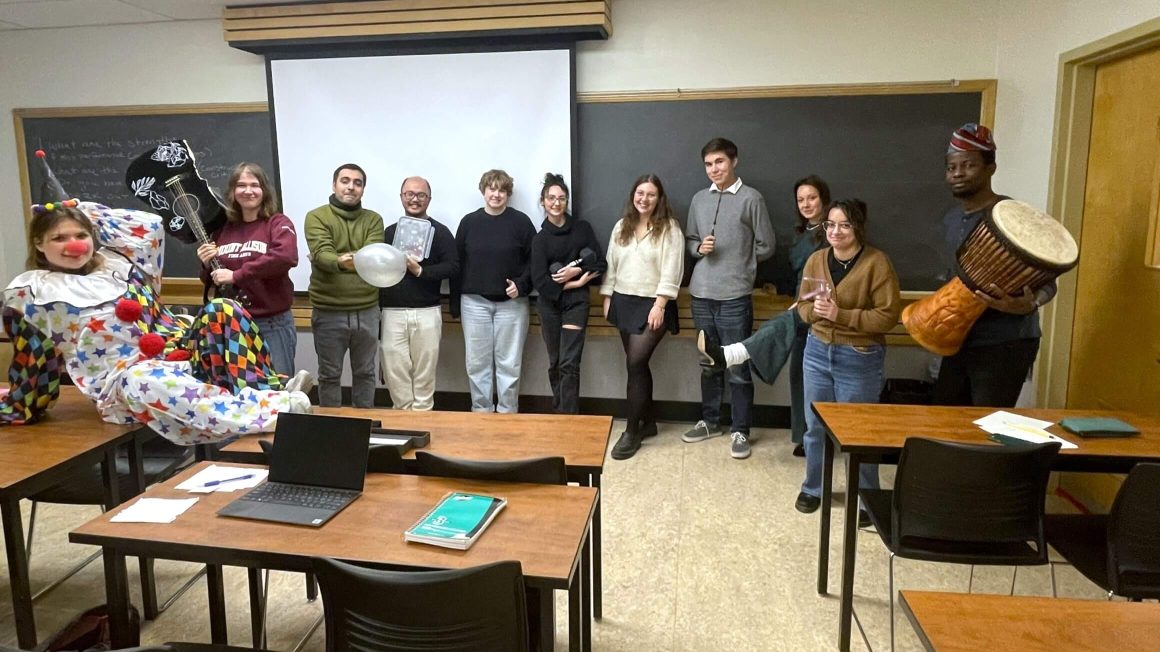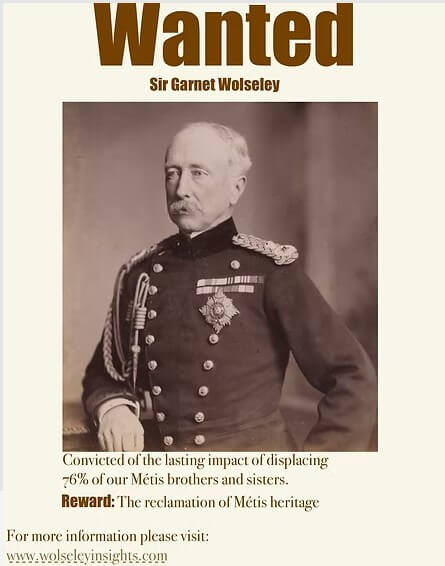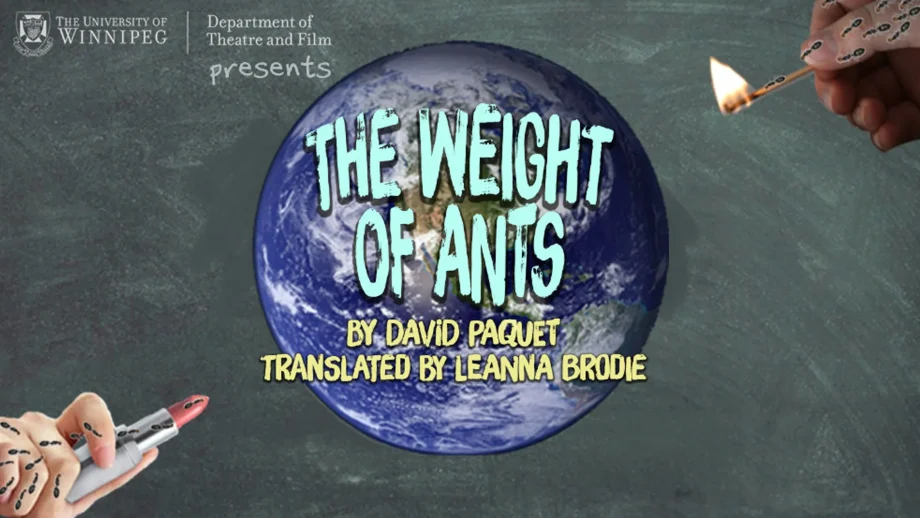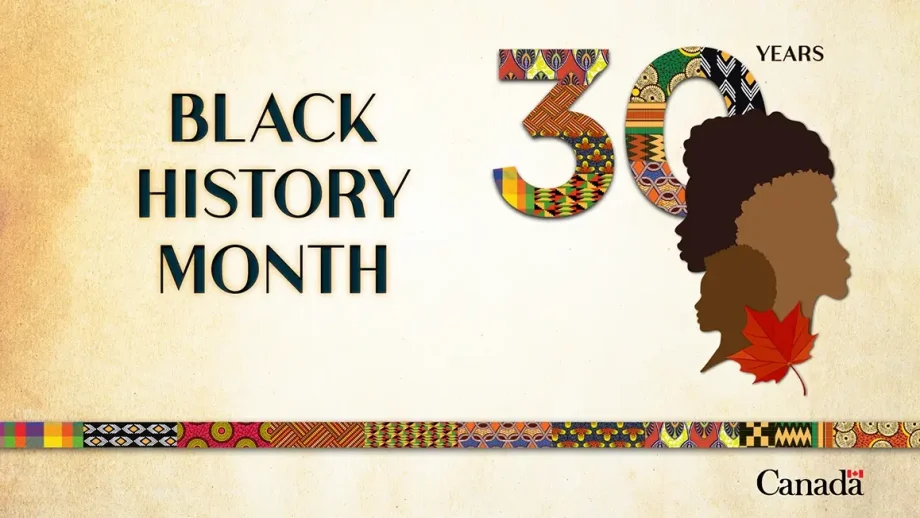At first, English Honours students Finnen Voltlohin and Kylie Phillips were apprehensive when they signed up for a new experimental course Performance Studies, cross listed in English and the Master of Arts in Cultural Studies. But once they were in the class, both students felt differently.
“Truthfully, I came into this course expecting it to be the dread point of my semester,” Voltlohin recalled. “This course changed how I look at others and myself moving through the world.”
“When we got the course outline there were two performances in it,” said Phillips. “The first day I was shaking. I was literally terrified to go to class. But, I think the course weirdly gave me a lot of confidence.”
Being able to inject an element of play into a space that’s typically seen as a sophisticated institution allows for new ways of thinking and learning.
Finnen Voltlohin
The Performance Studies course was offered for the first time ever at UWinnipeg last Fall term. Dr. Sandy Pool, who instructs the course, says it explores social justice art-making through the lens of Performance Studies, and examines how performance can be a broad range of actions ranging from play, games, sports, and theatre to constructions of race, gender and identity in everyday life.
“My hope is that students learn the importance of performance as a powerful tool for social change,” Dr. Pool explained. “I hope to inspire students to see how easy it is to express themselves as artists while also making deep impacts in their local communities.”
Meaningful performances
The course asked students to think of performance as an everyday act, then to create two separate performances. The first performance was done in-class as a showcase of self, the second as a social justice-oriented work within the greater community.
“Through performance projects, students explore how performance shapes individual identity while also serving as a tool for disrupting oppression and inspiring collective action,” Dr. Pool said.
One student’s community performance included a series of African drumming workshops for teenagers, while another student staged a queer wedding at the St. Boniface cathedral to talk about queerness and religion.
Voltlohin set up a community sewing station at C2 Centre for Craft on Cumberland.
“I had to both appease a deadline while maintaining my personal goal of establishing something with long-term effects in the community,” she said. “But it was tenfold more rewarding. Providing youth, newcomers, and folks who can’t afford mending or buying new clothes with access to this station tapped into multiple values for me.”
For Phillips, it was important to bring attention to the name of the Winnipeg residential area of Wolseley through her community performance.
“Wolseley was not a great historical figure towards the Métis people,” she explained. “I created a website that described everything that Wolseley did so that it’s a permanent recognition of the acts that he did.”
Phillips also put up missing posters in the Wolseley area, which “included parts of Métis culture that have nearly been eradicated because of Wolseley’s actions”, as well as wanted posters for Wolseley himself.
“Having my name attached to it was a little bit scary but it was also rewarding because it is such an important aspect of history that isn’t recognized very often,” she explained. “I am Métis myself, and I think it was very important for my community.”
Making connections
Dr. Pool hopes to offer this course again in the future, and said the students’ projects were a “true testament to what happens when they connect their cultural literacies with their passion for social justice.”
“It’s definitely changed my view of art a lot, and I have a much deeper appreciation for it now,” Phillips said. “Our class, I found, connected a lot on a deeper level, and that just made the learning outcomes so much better.”
“Being able to inject an element of play into a space that’s typically seen as a sophisticated institution allows for new ways of thinking and learning,” Voltlohin said. “There’s undeniable value in what you can learn about yourself by engaging with familiar subject matter in unfamiliar ways.
The Department of English at the University of Winnipeg offers a wide range of courses and a number of different undergraduate degree programs providing students with the opportunity to specialize in English Literature, Creative Writing, Young People’s Texts and Cultures, and Screen Studies, and an MA in Cultural Studies.
The University of Winnipeg’s multidisciplinary Master of Arts in Cultural Studies is the only graduate program in Cultural Studies in Western Canada. This innovative, 12-month, course-based program that offers specializations in Texts and Cultures or Curatorial Practices.






